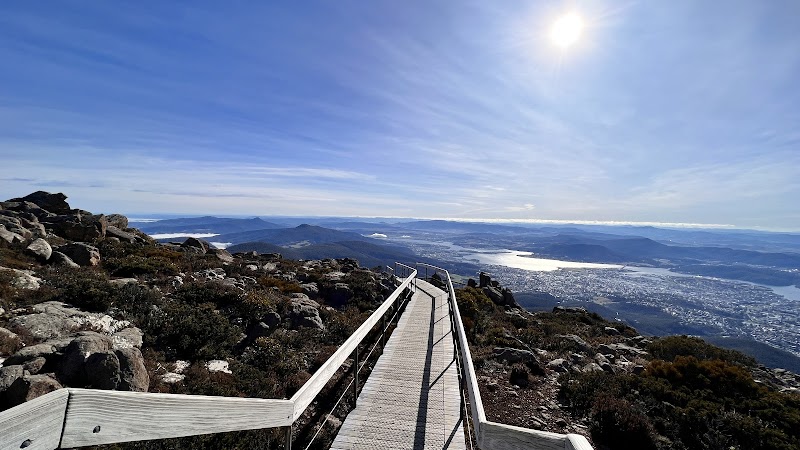Exploring Wine Near Hobart: A Practical Guide to Tasmania’s Vineyard Adventures
Discover the vibrant wine regions near Hobart, Tasmania, where cool-climate vineyards produce world-class Pinot Noir and Chardonnay. This guide offers practical tips for visiting cellar doors and planning your wine tours, blending adventure with rich sensory experiences.
Book Tastings in Advance
Many boutique vineyards limit tasting flights to booked visitors. Secure your spot early to enjoy exclusive wines and personalized tours.
Stay Hydrated
Tasmania’s cool climate can be deceptive—paces can get warm while walking vineyard rows. Keep water handy between tastings.
Wear Comfortable Footwear
Vineyard terrains vary from gravel paths to soft earth. Choose shoes that support walking but also adapt to cellar door settings.
Plan Transport Carefully
A designated driver or tour service is vital to safely enjoy wine tastings. Public transport options are limited in rural vineyard areas.
Exploring Wine Near Hobart: A Practical Guide to Tasmania’s Vineyard Adventures
Exploring Wine Near Hobart: A Practical Guide to Tasmania’s Vineyard Adventures
Just outside Hobart, the landscape transitions from urban pulse to rolling vineyards and cool-climate wine regions. This area boasts vineyards with world-class Pinot Noir, delicate Chardonnay, and vibrant sparkling wines, all influenced by Tasmania’s crisp air and clean soil. Visiting wine near Hobart offers more than sipping; it’s about engaging with winemakers crafting nuanced flavors shaped by the state’s unique climate and terrain.
Wine enthusiasts and curious travelers alike find themselves drawn to the Coal River Valley and Derwent Valley, less than an hour’s drive from Hobart. These regions combine accessible cellar doors with stunning views of sunshine-dappled hills and frost-kissed morning vines. Practical access means you can taste, tour, and buy local wines anytime from spring through autumn.
Planning your wine journey? Look for cellar doors featuring small-batch, artisanal wines that emphasize freshness and terroir. Many vineyards offer tasting flights, allowing you to compare styles side-by-side. Booking tours in advance ensures personalized experiences and access to exclusive tastings some vineyards reserve for visitors who come prepared.
Hobart’s proximity means you can pair wine tastings with outdoor adventures–day hikes, river trails, or coastal vistas. This dynamic region balances adventure with leisurely indulgence, making it ideal for travelers seeking both active and sensory experiences.
SEO Keywords Explained:
- Wine near Hobart: Highlights the immediate region surrounding Hobart, focused on local vineyards and cellar doors.
- Tasmania wine regions: Points to the specific cool climate wine districts around Hobart, incl. Coal River Valley and Derwent Valley.
- Hobart wine tours: Targets visitors seeking guided, curated vineyard experiences accessible from Hobart.
- Pinot Noir Tasmania: Emphasizes the flagship varietal that thrives here, a signature style for the state’s vineyards.
- Cellar doors near Hobart: Practical keyword for visitors looking to visit tasting rooms and purchase direct.
Together, these keywords capture the essence of exploring local wine offerings accessible from Hobart, emphasizing regional specificity and immersive experiences.
Below, find curated nearby outdoor trips and excursions that blend active pursuits with the rich backdrop of Tasmania’s wine country near Hobart.
Nearby Trips
All Adventures
Boat Charters
Water Activities
Adventures near Hobart
Discover the unique and memorable adventures that make Hobart special.
Frequently Asked Questions
What types of wines are most common near Hobart?
The region excels in cool-climate wines, especially Pinot Noir and Chardonnay. Sparkling wines are also noteworthy due to the natural acidity preserved in the grapes.
Are there any vineyards offering tours for families or groups?
Several vineyards near Hobart offer private tours and tastings suitable for groups. While wine tasting is typically for adults, some vineyards have spaces where families can enjoy gardens or picnics.
Can you bike between vineyards in the Hobart region?
Cycling routes exist but can be challenging due to hilly terrain and limited signage. Guided bike tours with local operators are recommended for safety and enhanced experience.
What wildlife might I encounter in the vineyards?
The area hosts native birds such as rosellas and black cockatoos. Occasionally, wallabies graze near vineyard edges, especially in quieter hours.
Are there environmental practices wineries near Hobart follow?
Many local vineyards implement sustainable methods, including organic farming and water conservation, preserving the delicate balance of the region’s ecosystem.
What is a lesser-known wine tasting spot near Hobart?
Try the small, family-run vineyards in the Coal River Valley’s less trafficked corners, where intimate tastings and vineyard walks reveal a local side often missed by tourists.
Recommended Gear
Comfortable Walking Shoes
Supportive footwear is crucial for navigating varied vineyard surfaces comfortably during tastings and tours.
Weather-Appropriate Layered Clothing
Tasmania’s weather can shift quickly; layers help manage temperature changes throughout vineyard visits.
Reusable Water Bottle
Staying hydrated is essential, especially between wine tastings where alcohol can be dehydrating.
Sunglasses and Sunscreen
Sun protection is important during sunny vineyard strolls, even on cooler or overcast days.
Local Insights
Hidden Gems
- "Truffle hunting experiences paired with wine tastings in the Derwent Valley"
- "Small-batch sparkling wine producers off the main cellar door trails"
Wildlife
- "Eastern rosellas feistily dart between vine rows"
- "Shy Bennetts wallabies that graze at dusk near vineyard edges"
History
"The Coal River Valley is one of Tasmania’s oldest wine producing areas, with some vineyards tracing roots back to the early 19th century, linking viticulture to the region’s colonial history."
